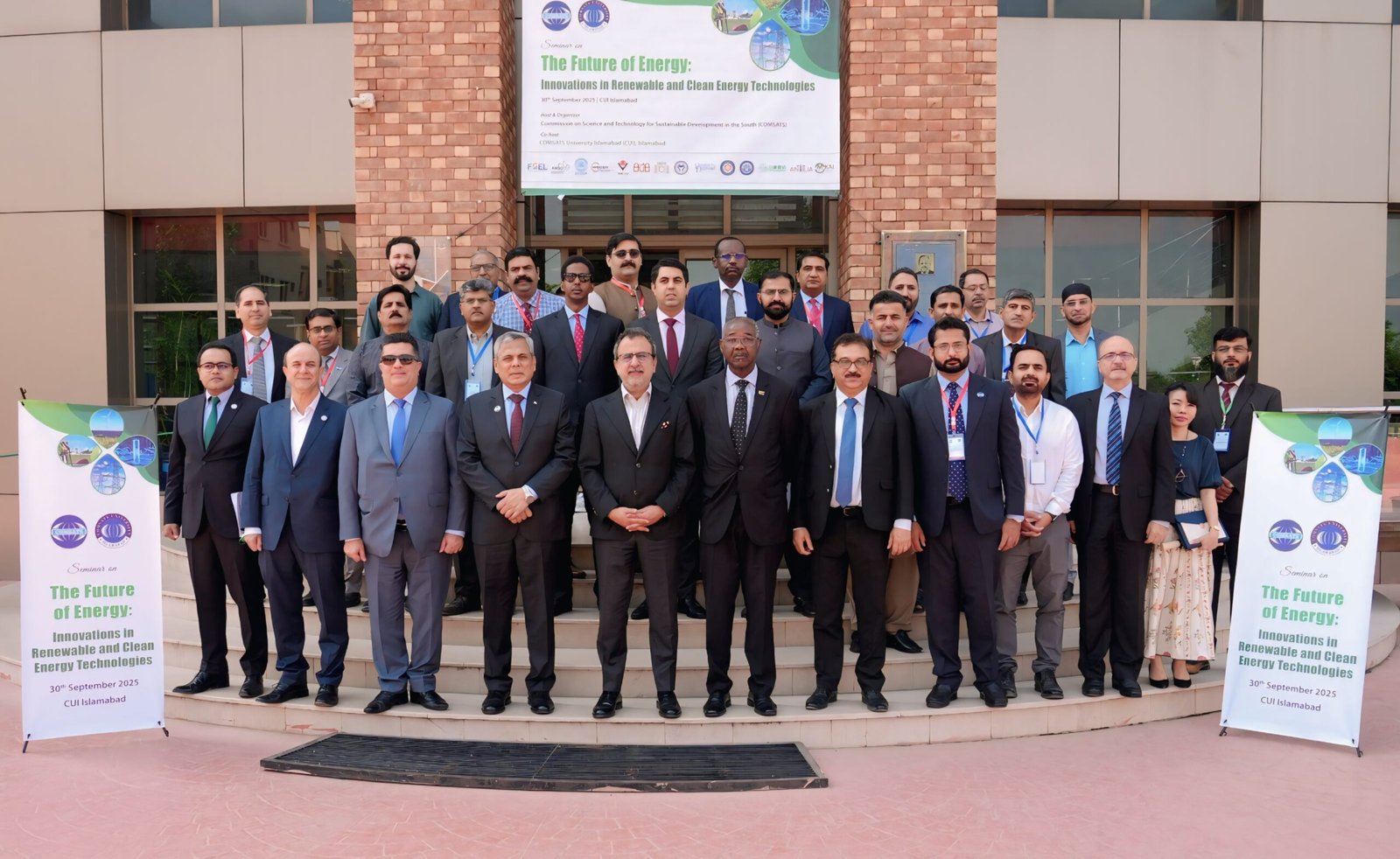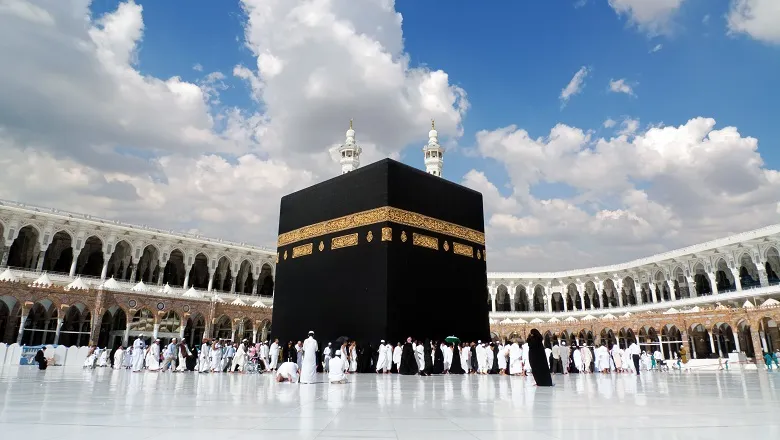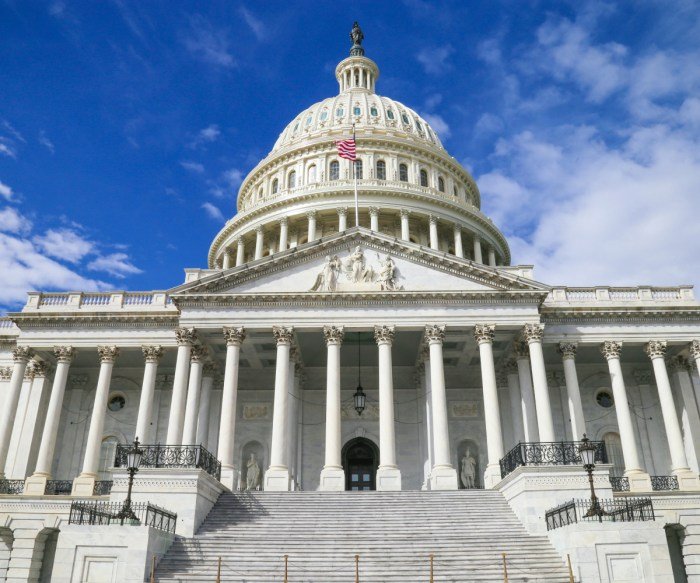Islamabad, 30 September 2025 — At an international seminar hosted by COMSATS University Islamabad, Federal Minister for Energy H.E. Sardar Awais Ahmed Khan Leghari called for enhanced collaboration in clean tech to accelerate Pakistan’s energy transition. The event, titled The Future of Energy: Innovations in Renewable and Clean Energy Technologies, brought together diplomats, scientists, and energy experts from across the globe.
Speaking as Chief Guest, the Minister emphasized that although Pakistan contributes less than one percent to global emissions, it remains among the most climate-vulnerable nations. He stressed the urgency of harnessing solar, wind, and hydro resources to achieve energy self-sufficiency and sustainability. He also outlined key reforms, including improved governance through independent boards, privatization for efficiency, and digitization via smart metering.
The Minister noted that infrastructure alone cannot meet future energy demands. He called for smart solutions, advanced forecasting, and digital integration. He highlighted the establishment of the Power Planning and Monitoring Company (PPMC) to support evidence-based decision-making. Pakistan, he reaffirmed, is committed to sourcing 60% of its electricity from clean and renewable sources by 2030. Currently, the national grid carries 2,000 MW of wind, 800 MW of solar, and over 10,000 MW of hydropower. Distributed generation, especially net metering, contributes an additional 7,000 MW—underscoring Pakistan’s steady shift toward a sustainable energy future.
The Minister expressed gratitude to COMSATS Executive Director Ambassador Dr. M. Nafees Zakaria, Rector Prof. Dr. Sajid Qamar, and partner institutions for organizing the seminar. He commended COMSATS’ initiatives and reaffirmed the government’s full support for its mission.
Ambassador Zakaria noted that participation from 15 COMSATS member states and international partners reflected the growing importance of clean tech. He emphasized energy security as a cornerstone of sustainable development and called for universal access to reliable, affordable, and clean energy, in line with SDG-7. He also highlighted COMSATS’ indigenous development of Electric Vehicle (EV) technology through its tech partner.
Other speakers included Prof. Seyed Komail Tayebi, President ECO Science Foundation; Prof. Liu Weidong, Executive Director ANSO; and Prof. Dr. Junaid Mughal from COMSATS University. They praised the collaborative spirit of the seminar and emphasized the role of innovation in renewable energy. Prof. Liu shared ANSO’s ongoing efforts in scholarships, fellowships, and collaborative R&D, noting the alignment between ANSO and COMSATS mandates.
The seminar featured four technical sessions with 15 speakers from China, Iran, Morocco, Pakistan, Sri Lanka, Syria, Turkiye, and the USA. Topics ranged from solar and wind energy to biofuels, tidal power, energy storage breakthroughs, and AI-driven smart grids. Experts explored how digital technologies can be integrated into energy systems to improve efficiency and resilience.
Over 150 participants joined the event, including scientists, researchers, policymakers, faculty, and students from 17 countries. The diverse attendance underscored the global relevance of clean tech and the shared commitment to sustainable energy solutions.
The seminar concluded with a renewed call for international cooperation, knowledge exchange, and investment in clean technologies. As Pakistan advances toward its 2030 energy goals, platforms like COMSATS continue to play a vital role in shaping policy, innovation, and regional collaboration.










